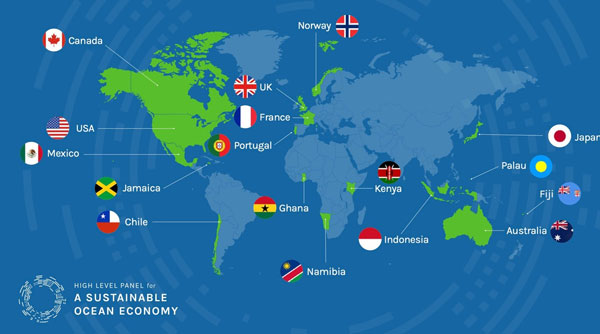Ocean-based action can play a critical role in helping the world to avoid the worst impacts of climate change, closing the emissions gap by as much as 35%, based on solutions that are ready to implement. Emission reductions of this magnitude are equivalent to four times the annual emissions of European Union countries.
A new study looks at the emission reduction potential of 7 ocean-based sub-sectors including:
- Scaling ocean-based renewable energy
- Decarbonising ocean-based transport
- Conserving and restoring coastal and marine ecosystems
- Utilising low carbon food from the ocean
- Developing marine carbon dioxide removal and carbon capture and storage under the seabed
- Decarbonising ocean-based tourism
- Reducing offshore oil and gas
The report has been produced on behalf of the High Level Panel for a Sustainable Ocean Economy (Ocean Panel). Established in 2018, the Ocean Panel is a unique initiative made up of world leaders who are building momentum for a sustainable ocean economy in which effective protection, sustainable production and equitable prosperity go hand in hand. The Panel includes the Prime Ministers of Canada, Australia, Fiji and the UK, as well as the Presidents of France and USA, among others.
The report states that policymakers, governments, and civil society groups must include ocean policy in climate action. Solutions also require greater engagement and coordination across businesses and industry, inclusion of communities and stakeholders and robust monitoring and evaluation, says the report.
‘This report demonstrates that the ocean can provide solutions that are viable and ready-to-implement to help ‘correct the course’ on climate change. What’s needed now is action to deliver these solutions and significant levels of investment to make it possible – before we run out of time.’
The summary report can be found here.
